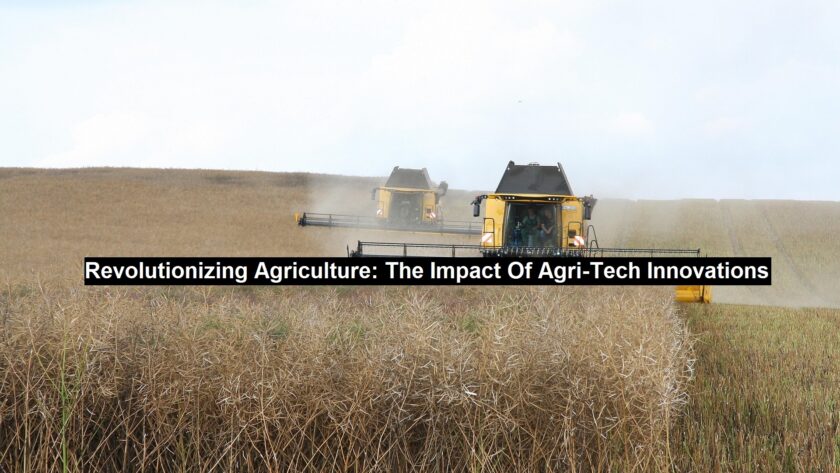Agriculture is experiencing an exciting transformation, largely driven by agricultural technology, or agri-tech. These innovations are more than just small improvements; they represent a complete overhaul in how farming is carried out around the world. Agri-tech includes a wide range of cutting-edge tools and technologies, such as precision farming, drone monitoring, automated irrigation systems, and advanced smart sensors. These advancements are designed to help farmers optimize their use of resources, boost crop yields, and support more sustainable farming practices in the face of global challenges.
A major advantage of agri-tech is its ability to empower farmers with better decision-making capabilities. Precision farming, for instance, leverages data from satellite imagery and soil sensors to carefully manage crops with great accuracy. By targeting the application of water, fertilizers, and pesticides, farmers can reduce waste and enhance the effectiveness of their efforts. In addition, drones equipped with high-resolution cameras provide farmers with a comprehensive view of their fields, enabling them to monitor crop health and detect potential issues such as pests or diseases before they escalate into more significant problems.
Automation has become another crucial aspect of modern agriculture. Automated irrigation systems use real-time data from weather stations and soil moisture sensors to deliver the exact amount of water that crops need, promoting healthy growth while conserving valuable water resources. Furthermore, robots are becoming increasingly popular in agriculture, performing tasks such as planting, weeding, and harvesting with remarkable precision. These automated machines reduce the physical strain on farmers and offer a level of efficiency and consistency that surpasses human capabilities, helping to ensure that crops are managed effectively.
Read: Salesforce App Exchange: 8 Tips to Select the Right Apps for Your Org
The Internet of Things (IoT) plays an essential role in connecting these technologies, enabling seamless communication and data sharing between devices. IoT devices in agriculture help farmers collect and analyze data more efficiently, reducing labor costs and improving productivity. By utilizing IoT connectivity, farmers can remotely monitor their farms and make real-time adjustments, optimizing operations for greater profitability. This interconnected approach is making farming increasingly data-driven, allowing farmers to make better-informed decisions and improve the sustainability of their operations.
Equally important are the physical components and infrastructure that support agri-tech systems. Metal casting is essential for producing the durable, high-precision components that are necessary for modern farming equipment. Whether it’s parts for drones, irrigation systems, or the framework of automated machinery, metal casting ensures that these tools are both reliable and capable of withstanding the harsh conditions of the agricultural environment.
As the global population continues to grow, the need for increased food production becomes even more pressing. Agri-tech provides the tools to meet this demand while also addressing significant challenges such as climate change and resource scarcity. The ongoing development of these technologies is critical to the future of farming, helping farmers improve productivity and sustainability, and ensuring that agriculture remains a vital part of our global food system.
For more information on the impact of agri-tech innovations, please refer to the additional resource provided by Hiler Industries.
Agri-Tech-Innovations



